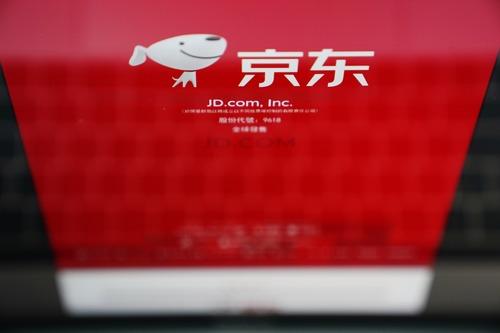HONG KONG, June 10 (Xinhua) -- E-commerce giant JD.com started on Monday its stock offering in a secondary listing in Hong Kong, the third U.S.-listed Chinese company to do so following Alibaba and NetEase.
If the overallotment option is exercised in full, JD.com plans to raise at most 35.65 billion Hong Kong dollars (about 4.6 billion U.S. dollars) through its offering of 133 million shares during the subscription till Thursday, with a price of no more than 236 Hong Kong dollars per share.
The company is set to begin trading on Hong Kong Exchanges and Clearing Limited (HKEX) on June 18.
The move came in an emerging wave of U.S.-listed Chinese companies turning to Hong Kong for a secondary listing. Alibaba made its debut in November, and NetEase will begin trading on Thursday.
HKEX Chief Executive Charles Li has predicted that many U.S.-listed companies will return to Hong Kong this year, which will boost IPOs in Hong Kong.
The Hong Kong exchange reformed its listing rules in 2018 to allow the listing of companies with weighted voting right structures and attract more new economy companies. The fund-raising of new economy companies on the exchange surpassed 300 billion Hong Kong dollars in the past two years.
The mega secondary listing of e-commerce giant Alibaba, worth over 100 billion Hong Kong dollars (about 13 billion U.S. dollars), helped HKEX top the world's IPO league table for a second straight year in 2019.
Market analysts believe that after Alibaba, NetEase and JD.com, there will be more and more U.S.-listed Chinese firms go to Hong Kong for secondary listing.
"All of the great companies we know that are coming back, have qualified already," Li said, putting an emphasis on technology firms.
A primary or secondary Hong Kong listing would allow these firms to get closer to their main customer base, he said.
Hong Kong finance secretary Paul Chan Mo-po said, numerous mainland businesses eager for global financing have made Hong Kong one of the top fund-raising markets in the world over the past decades. Now an emerging wave of overseas-listed Chinese companies coming back is expected to reinforce Hong Kong's financial position.
"Hong Kong as a mature financial center needs the support of a strong real economy," Chan said, pointing to the enormous mainland market, in particular the Guangdong-Hong Kong-Macao Greater Bay Area. (Contributed by Li Binbin, Fang Dong, edited by Niu Huizhe, niuhuizhe@xinhua.org)




 A single purchase
A single purchase









